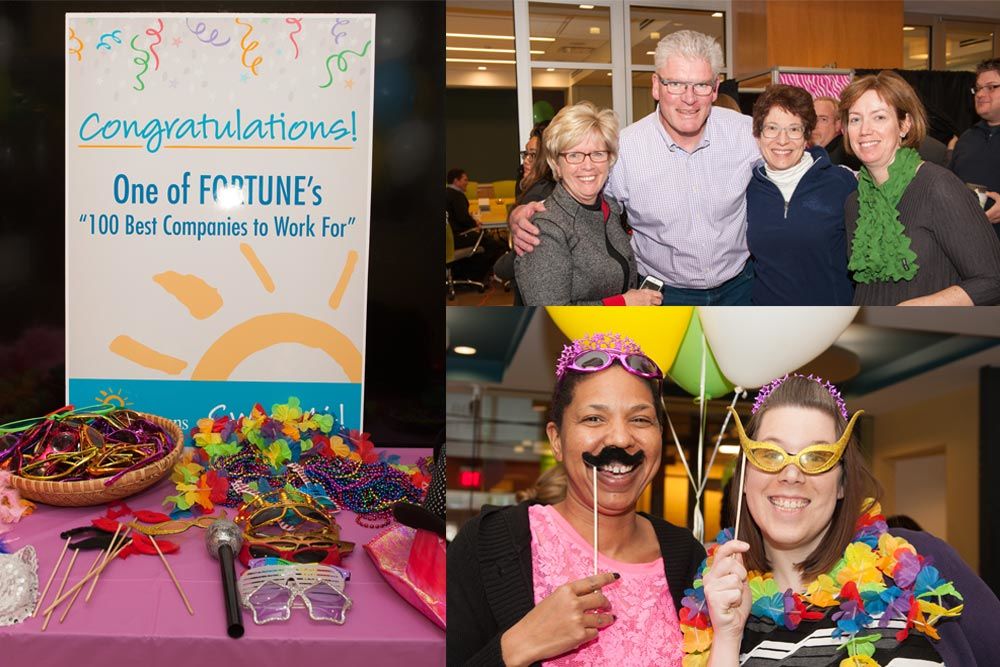In today's world, 30 years is a long time to be married, be a friend, or stay with a career. It's nearly unheard of to stay with the same employer for that amount of time but...that's exactly what I've done.
Depending on how you define "generations," I am a Boomer. So, a Boomer staying with the same employer may not seem that unusual. However, I'm a Boomer who believes, as Peggy Thoits research suggests, that my role as "employee" comes after my roles as mother, wife, friend, and spiritual observer. I also get bored easily.
So, what would cause me to stay at Bright Horizons for what some think is a ridiculously long period of time? Three things:
These principles guide how we interact with each other and how we resolve challenges. I could write a book of examples demonstrating the impact of the HEART principles on our culture, decisions, and approach to work. When the organization that I worked for was purchased by Bright Horizons, they honored my tenure and I joined my new employer as an employee with 16 years on the books. Who does that??? Suffice to say...when the HEART principles are implemented as intended, the work environment is highly productive, collaborative, and often fun!
Finally, as I alluded to above, I have experienced a work environment and had the pleasure of working for talented supervisors that have supported my desire to put meaningful time and energies into my "non-employee" roles of mother, wife, friend, and religious observer. When my daughter was born, I asked for and was granted a six month leave of absence at a time when such departures from work were quite rare.
All of this is to say that having a culture in place that supports work/life balance while offering professional development opportunities isn't a theoretical retention strategy. The strategy retained me!
Employee Loyalty: It's Not Dead.
I just celebrated my 30th anniversary with Bright Horizons. You may wonder how I could celebrate my 30th anniversary at an organization that is only 26 years old. Bright Horizons acquired an organization I worked for and grandfathered my years of service - more about that later.Depending on how you define "generations," I am a Boomer. So, a Boomer staying with the same employer may not seem that unusual. However, I'm a Boomer who believes, as Peggy Thoits research suggests, that my role as "employee" comes after my roles as mother, wife, friend, and spiritual observer. I also get bored easily.
So, what would cause me to stay at Bright Horizons for what some think is a ridiculously long period of time? Three things:
- Culture
- Career Opportunities
- Work/Life Balance
A Winning Culture
Bright Horizons has an amazing culture that is summarized through our HEART principles of Honesty, Excellence, Accountability, Respect, and Teamwork.These principles guide how we interact with each other and how we resolve challenges. I could write a book of examples demonstrating the impact of the HEART principles on our culture, decisions, and approach to work. When the organization that I worked for was purchased by Bright Horizons, they honored my tenure and I joined my new employer as an employee with 16 years on the books. Who does that??? Suffice to say...when the HEART principles are implemented as intended, the work environment is highly productive, collaborative, and often fun!
Facilitated Career Growth, Supported Employees
I've also enjoyed a wonderful career path that started as a part-time assistant teacher while an undergrad. I found a place where I could contribute, make a difference, and envision a future. The rest, as they say, is 30 years of history. Each time I thought it was time to move on because I was bored (usually in my 20's), or I had moved into another stage of my life that didn't seem to fit well with my current role (usually in my 30's), a wonderful professional growth opportunity was available. It was amazing to find that in one organization.Finally, as I alluded to above, I have experienced a work environment and had the pleasure of working for talented supervisors that have supported my desire to put meaningful time and energies into my "non-employee" roles of mother, wife, friend, and religious observer. When my daughter was born, I asked for and was granted a six month leave of absence at a time when such departures from work were quite rare.
All of this is to say that having a culture in place that supports work/life balance while offering professional development opportunities isn't a theoretical retention strategy. The strategy retained me!





